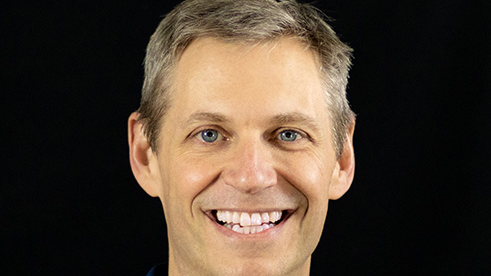
The Yale University Department of Physics welcomes Konrad Lehnert as professor of physics and as a member of both the Yale Quantum Institute and Yale’s Wright Lab, effective July 1, 2024. Lehnert focuses on studying quantum coherence in macroscopic mechanical oscillators, developing quantum-coherent networks of microwave signals for control and measurement, and implementing quantum-limited measurements in astrophysics and condensed matter experiments.
Lehnert is a member of two experimental collaborations searching for the axion candidate of dark matter, HAYSTAC and ALPHA, both located at Wright Lab. He will continue to work on these experiments as a Yale faculty member.
Lehnert previously was a fellow at the Joint Institute for Laboratory Astrophysics (JILA), a joint institute of the University of Colorado and NIST. He served as JILA Chair from 2022- 2024.
At JILA, Lehnert established a research group studying microwave quantum circuits, mesoscopic electronics, and quantum nanomechanics. In particular, his group pioneered measurements of electrical circuits and mechanical oscillators that reached quantum-limited sensitivity. In addition, his group developed control methods that cooled mechanical oscillators to their quantum ground state and entangled them with electrical circuits. Recently, he has applied techniques of quantum enhanced measurement and control to the search for hypothesized fundamental particles that make up dark matter.
Prior to his position at JILA, Lehnert was a post-doctoral scientist at Yale from 1999-2003, working with Robert Schoelkopf on qubit structures built from superconducting circuits. He received his Ph. D. in 1999 from the University of California at Santa Barbara.
Lehnert has published more than 100 papers in scholarly journals. He is a fellow of the American Physical Society and the American Association for the Advancement of Science. He won the Department of Commerce Silver Medal and the Colorado Governor’s Award for High Impact Research. In 2020, Lehnert was awarded a Vannevar Bush Faculty Fellowship.
Research:
Professor Lehnert’s group builds electrical and electromechanical machines and coax them into exhibiting quantum behavior. They are motivated by asking “what is the largest and most tangible object that can be in two places at once?” In addition, they seek to use these machines to store, process, and transmit information in an essentially quantum way. Finally, they develop measurement tools for sensing feeble forces and electrical signals at the limits imposed by quantum mechanics.
Recent Publications:
Superconducting-qubit readout via low-backaction electro-optic transduction
Delaney R., M. Urmey, S. Mittal, B.M. Brubaker, J. Kindem, P.S. Burns, C.A. Regal, and K.W. Lehnert, Nature 606, 489-493 (2022).
Efficient and Low-Backaction Quantum Measurement Using a Chip-Scale Detector
Rosenthal E.I., C.M.F. Schneider, M. Malnou, Z. Zhao, F. Leditzky, B.J. Chapman, W. Wustmann, X. Ma, D.A. Palken, M.F. Zanner, and L.R. Vale, Physical Review Letters 126, (2021).
A quantum enhanced search for dark matter axions
Backes K.M., D.A. Palken, A. Kenany, B.M. Brubaker, S.B. Cahn, A. Droster, G.C. Hilton, S. Ghosh, H. Jackson, S.K. Lamoreaux, and A.F. Leder, Nature 590, 238-242 (2021).
Non-classical energy squeezing of a macroscopic mechanical oscillator
Ma X., J.J. Viennot, S. Kotler, J.D. Teufel, and K.W. Lehnert, Nature Physics 17, 322-326 (2021).
Resolving Phonon Fock States in a Multimode Cavity with a Double-Slit Qubit
Sletten L.R., B. Moores, J.J. Viennot, and K.W. Lehnert, Physical Review X 9, 021056 (2019).